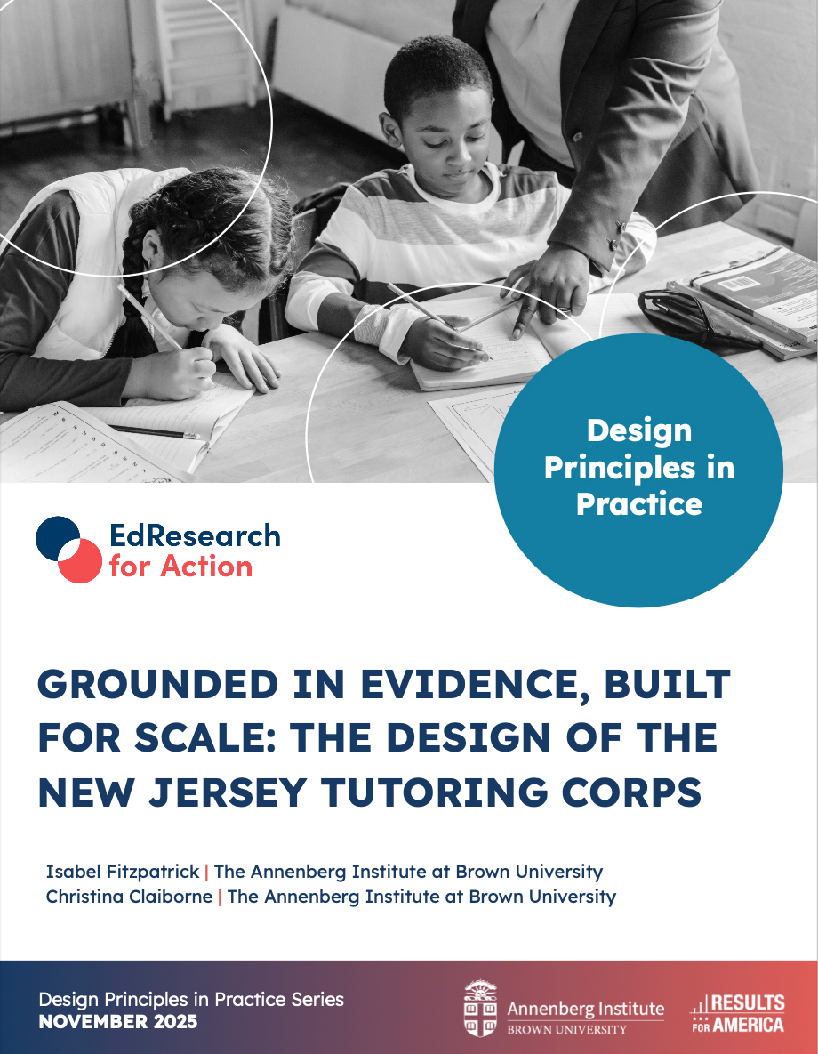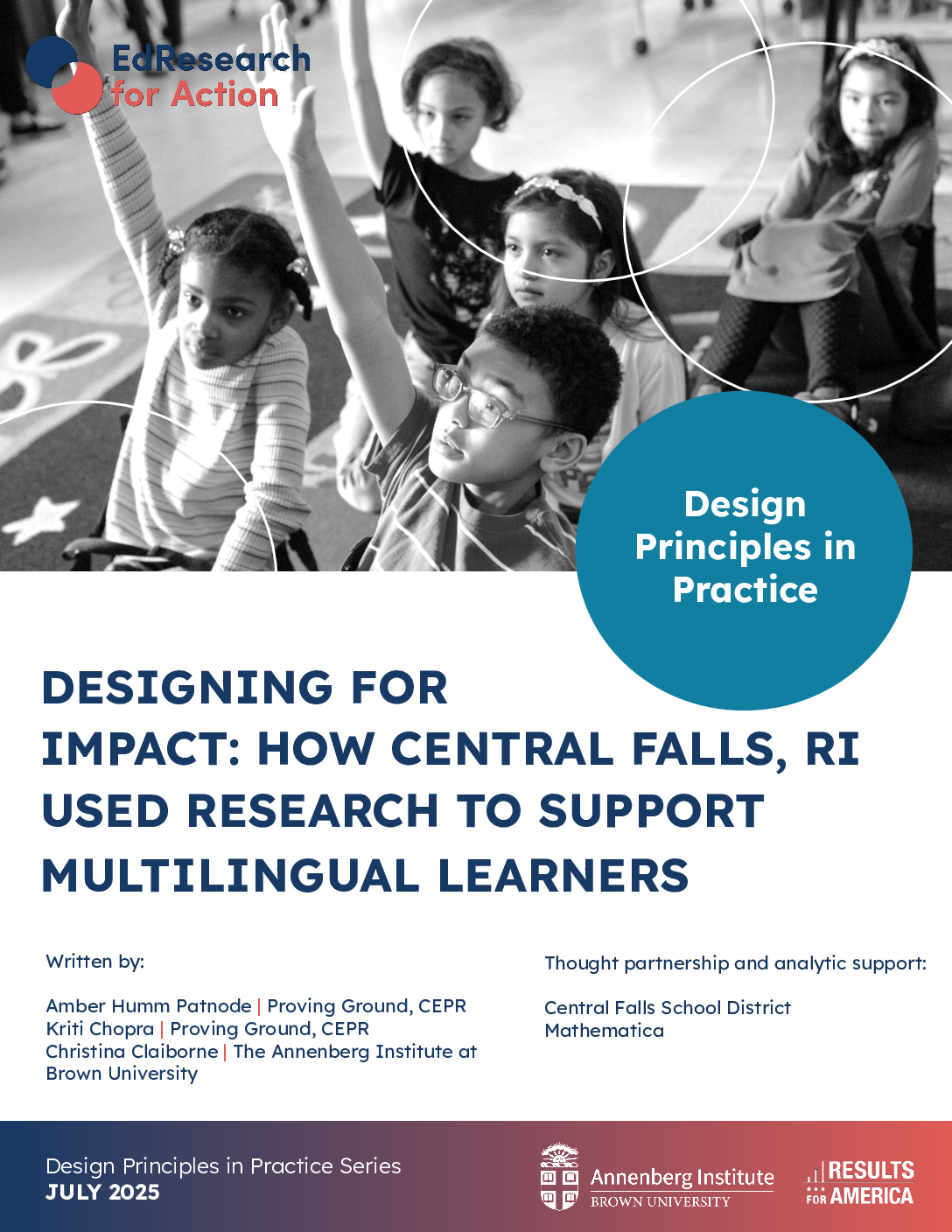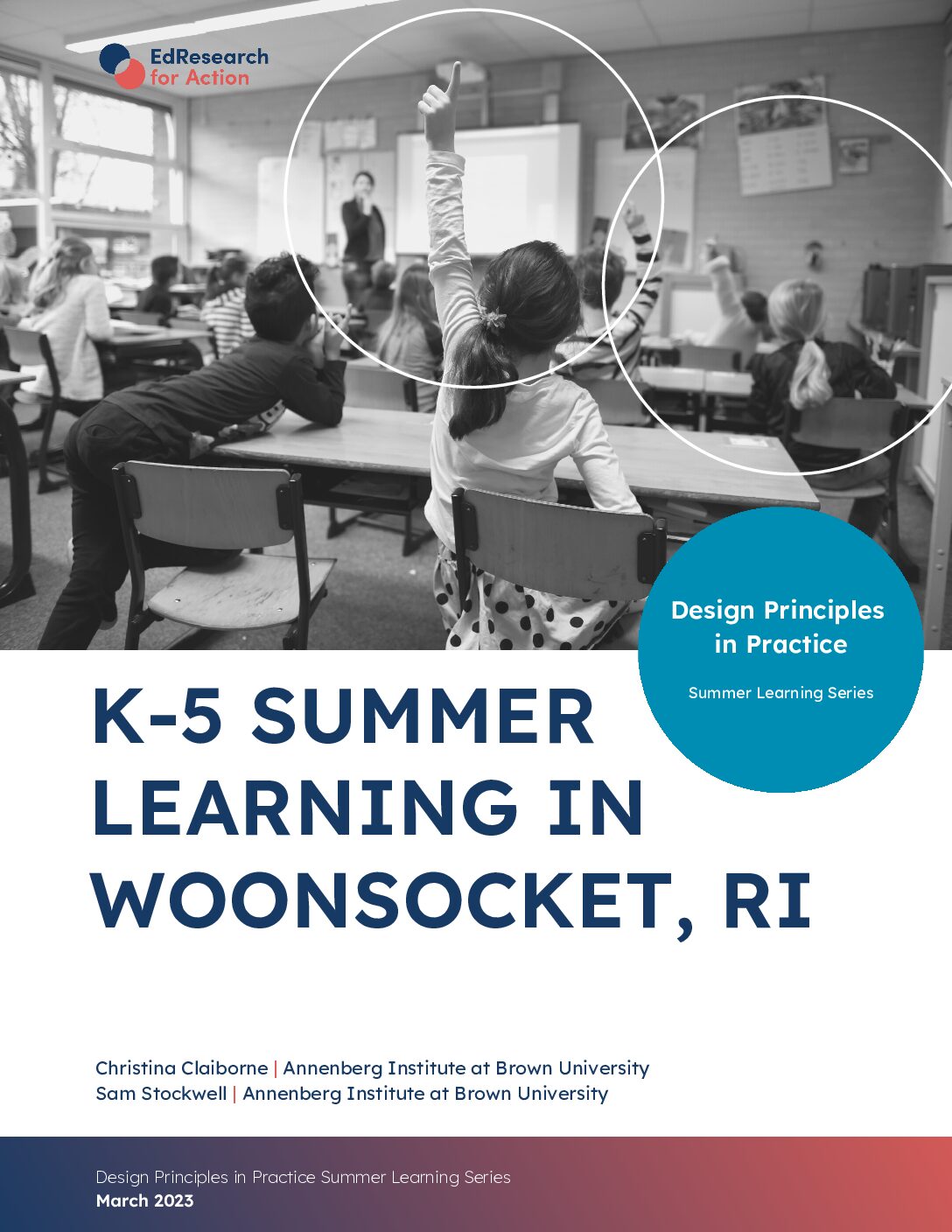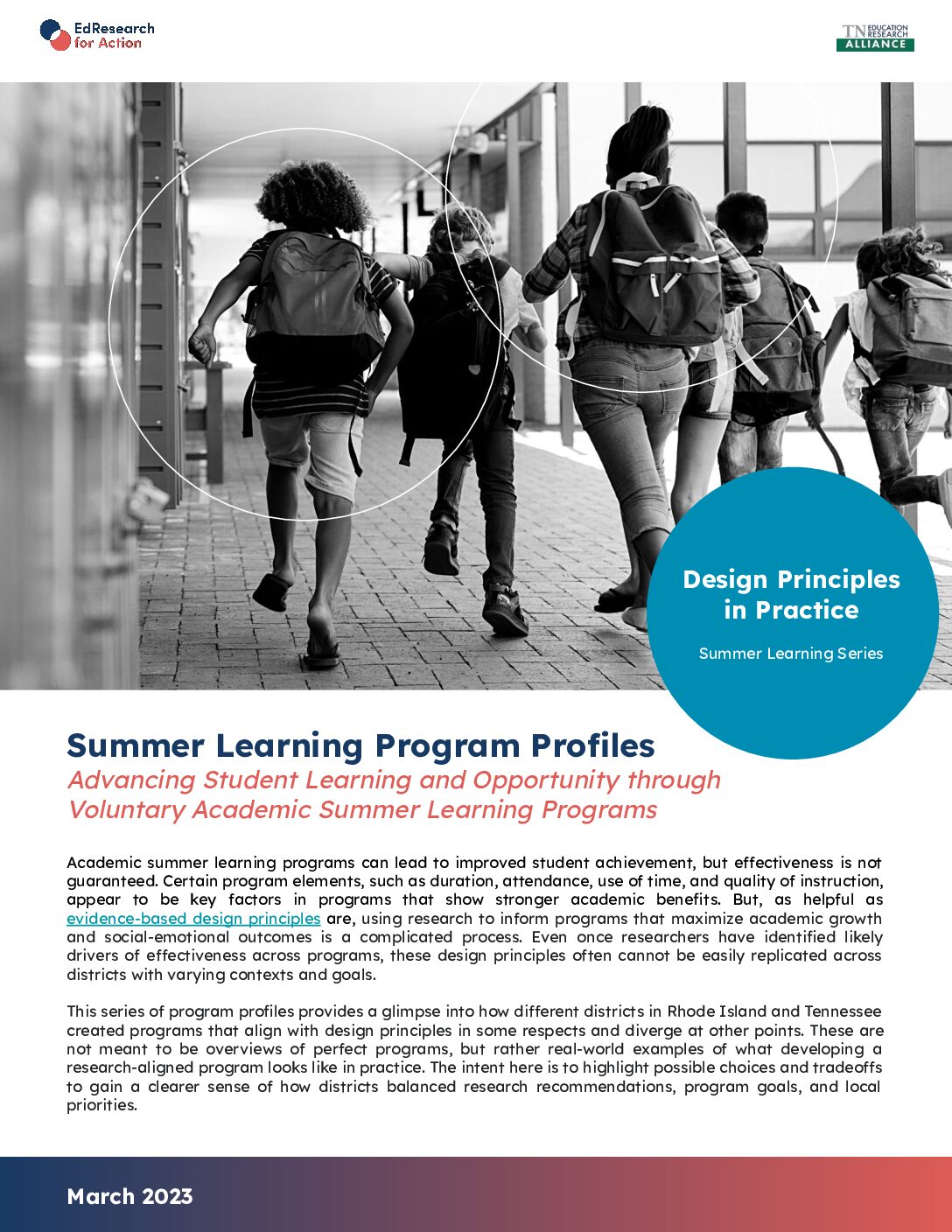Resources
Resources based on learning from our work with partners in the field.
Our case studies, data collection guides, and toolkits provide education leaders with practical guidance and actionable steps for designing and implementing evidence-based programs. The goal of these resources is to support and examine the outcomes of evidence use in practice.
Resources
Grounded in Evidence, Built for Scale: The Design of the New Jersey Tutoring Corps
November 12, 2025
The case study examines how the New Jersey Tutoring Corps was established as a high-dosage tutoring initiative to help K-8 students recover from pandemic-era learning loss. It shows how the nonprofit built strong partnerships with districts, embedded tutors during the school day and after school, aligned instruction to state standards, and scaled rapidly across urban, suburban, and rural sites. For education leaders in districts, states, or nonprofits, the study offers practical insights into structuring and implementing a tutoring program with fidelity: how to design tutor-to-student ratios, schedule sessions, co-design with school partners, and build capacity for sustainability. It illustrates how evidence-informed models can be translated into actionable programming, and invites leaders to reflect on how they might adapt these lessons to their own contexts.
Designing For Impact: How Central Falls, RI Used Research to Support Multilingual Learners
August 13, 2025
Central Falls, Rhode Island, a small, densely populated city where over half of students are multilingual learners, faced persistent language proficiency gaps and limited supports for newcomer students. Partnering with the Rhode Island Department of Education and Harvard’s Proving Ground, the district used an evidence-based, collaborative design process to create See the 3, an extended day program integrating language instruction, social-emotional learning, and identity development. The program combines small-group, culturally responsive teaching with enrichment activities, family engagement, and targeted recruitment for students scoring lowest on the state language assessment. Evaluation results show consistent, measurable gains in language proficiency, alongside qualitative feedback highlighting stronger student confidence, belonging, and community connections. This case offers a model for how districts can translate research into locally tailored, equity-centered programming that delivers both academic and social benefits for multilingual learners.
K-5 Summer Learning in Woonsocket, RI
April 8, 2023
District staff face difficult trade-offs as they balance their local needs against the eight design principles described in the research brief. Limitations around district capacity and personnel as well as families’ demands for summer flexibility can directly conflict with calls for greater academic rigor or longer program length. While research should always be used to guide decision-making, it needs to be evaluated in relation to local values. Brighouse et. al argue that the process of using evidence to make effective decisions requires value judgments in evaluating the evidence and in determining which evidence is most important. Further, implementing processes for collecting data is critical to understanding program effectiveness and informing subsequent decisions on program improvement. This case study details how one district – Woonsocket, Rhode Island – chose to navigate these trade-offs and the ways this has played out in program design. In examining Woonsocket’s programmatic choices, three foundational values emerge. They empowered site-based leadership, prioritized program personnel, and designed for student personalization. These values guided decision-making and helped the district build a strong program that aims to balance research recommendations, program goals, and local priorities.
Summer Learning Program Profiles
April 9, 2023
Academic summer learning programs can lead to improved student achievement, but effectiveness is not guaranteed. Certain program elements, such as duration, attendance, use of time, and quality of instruction, appear to be key factors in programs that show stronger academic benefits. But, as helpful as evidence-based design principles are, using research to inform programs that maximize academic growth and social-emotional outcomes is a complicated process. Even once researchers have identified likely drivers of effectiveness across programs, these design principles often cannot be easily replicated across districts with varying contexts and goals. This series of program profiles provides a glimpse into how different districts in Rhode Island and Tennessee created programs that align with design principles in some respects and diverge at other points. These are not meant to be overviews of perfect programs, but rather real-world examples of what developing a research-aligned program looks like in practice. The intent here is to highlight possible choices and tradeoffs to gain a clearer sense of how districts balanced research recommendations, program goals, and local priorities.
Best Practices for Data Collection
April 27, 2023
This best practices resource is designed to provide school and district leaders with guidance on the types of data that they should collect, as well as how to collect, analyze, and interpret the data to gain insights into the effectiveness of their summer programs.

EdResearch for Action Overview Briefs: Writer’s Guide
May 15, 2023
Education decision-makers need research-informed insights that help them better understand a problem and how they might address it, and these types of insights are rarely stated explicitly or prominently in technical papers. The EdResearch model of writing prioritizes putting the “bottom line” up front. We emphasize points of consensus in a field, identify areas where the evidence is less solid, and provide scale and context for results. By following the guidance in this Writer’s Guide, authors will be able to use their judgment and experience to draw clearer conclusions in order to elevate key messages that are relevant and actionable for policymakers and practitioners.
Toolkits
Act on Evidence Toolkit
April 28, 2023
The EdResearch Act on Evidence Toolkit supports education leaders in assessing the degree to which their existing programs are aligned with the relevant evidence-base and determine a pathway towards improving alignment and student success.





